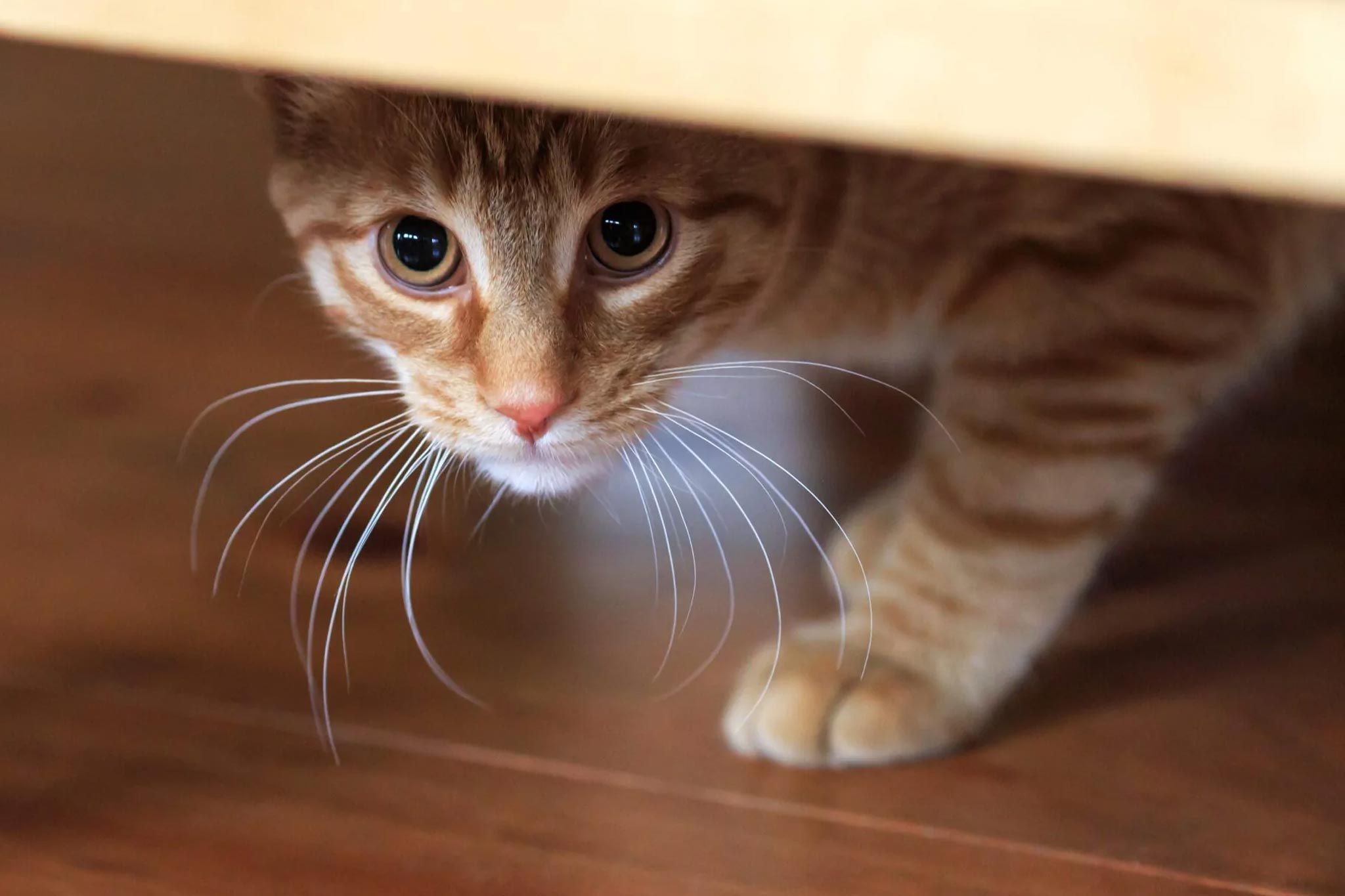Is it Normal for My Cat to Keep Hiding All the Time?
If you’ve been wondering why your feline family member seems to have taken up a permanent residence in the shadows, you’re not alone. Cats are mysterious creatures, and their penchant for hiding can leave pet owners perplexed. We hope to shed some light on this matter in our blog, exploring the various reasons why your cat might be choosing seclusion over snuggling up to you. As your local experts at Riverstone Animal Hospital, we’re here to provide you with insights into understanding your cat’s behavior and knowing when it’s time to seek professional guidance.
For more information or to schedule an appointment give us a call at (770) 479-7141!

Understanding Cat Behavior: The Art of Hiding
Cats are known for their independent nature, and hiding is often considered a part of their normal repertoire. However, it’s essential to distinguish between the occasional hide-and-seek session and a persistent hiding behavior. Let’s look at the different facets of cat behavior that might explain their tendency to hide.
Social Dynamics
Cats are inherently territorial creatures. When introducing a new cat to your home or experiencing changes in their environment, such as a new pet or a move, your feline friend might resort to hiding as a way to establish their safe space. This is their instinctual response to stress, allowing them to observe and adapt to the new situation at their own pace.
Illness or Discomfort
While hiding can be a natural stress response, it can also be a red flag indicating an underlying health issue. Cats are masters at concealing pain or discomfort, and hiding can be their way of coping with physical ailments. Conditions like urinary tract infections, dental problems, or arthritis may prompt a cat to seek solitude as they grapple with discomfort.
When to Seek Veterinary Care
Understanding the reasons behind your cat’s hiding is the first step, but it’s equally important to know when it’s time to contact your local veterinary practice, Riverstone Animal Hospital. Here are some signs that should prompt you to seek professional help:
Duration of Hiding
If your cat’s hiding behavior persists for an extended period, it may be a cause for concern. Cats may hide briefly in response to a new environment or temporary stress, but prolonged seclusion is not normal.
Changes in Appetite or Elimination
A noticeable decrease in appetite or changes in litter box habits, such as straining or avoiding the box altogether, can indicate underlying health issues that require immediate attention.
Visible Signs of Distress
Keep an eye out for signs of distress, such as vocalization, aggression, or excessive grooming. These behaviors can accompany hiding and may signal pain or emotional distress.
Health Issues and Hidden Discomfort
While cats are skilled at masking their discomfort, some health conditions commonly associated with hiding behavior should be on your radar:
Urinary Tract Infections
Cats with urinary tract infections may hide to avoid the discomfort associated with urination. They may also urinate outside the litter box, which is a red flag for this condition.
Dental Problems
Oral pain from dental issues can make eating painful for cats, leading to a decrease in appetite and a desire to hide.
Arthritis
Arthritis is not exclusive to humans; cats can suffer from it too. The pain and stiffness associated with this condition may cause them to seek refuge in secluded spots.
Have More Questions About Cats and Hiding?
We’re happy to help! While some degree of hiding is a normal aspect of a cat’s behavior, persistent hiding, and hiding accompanied by other symptoms such as loss of appetite, vomiting, or avoiding the litterbox should not be ignored. It could indicate an underlying health issue that requires attention from our trusted veterinary team at Riverstone Animal Hospital. We’re here to provide expert care and support for your feline companion. If you notice prolonged hiding or any associated changes in behavior, don’t hesitate to call us at (770) 479-7141 for an appointment or more information.
